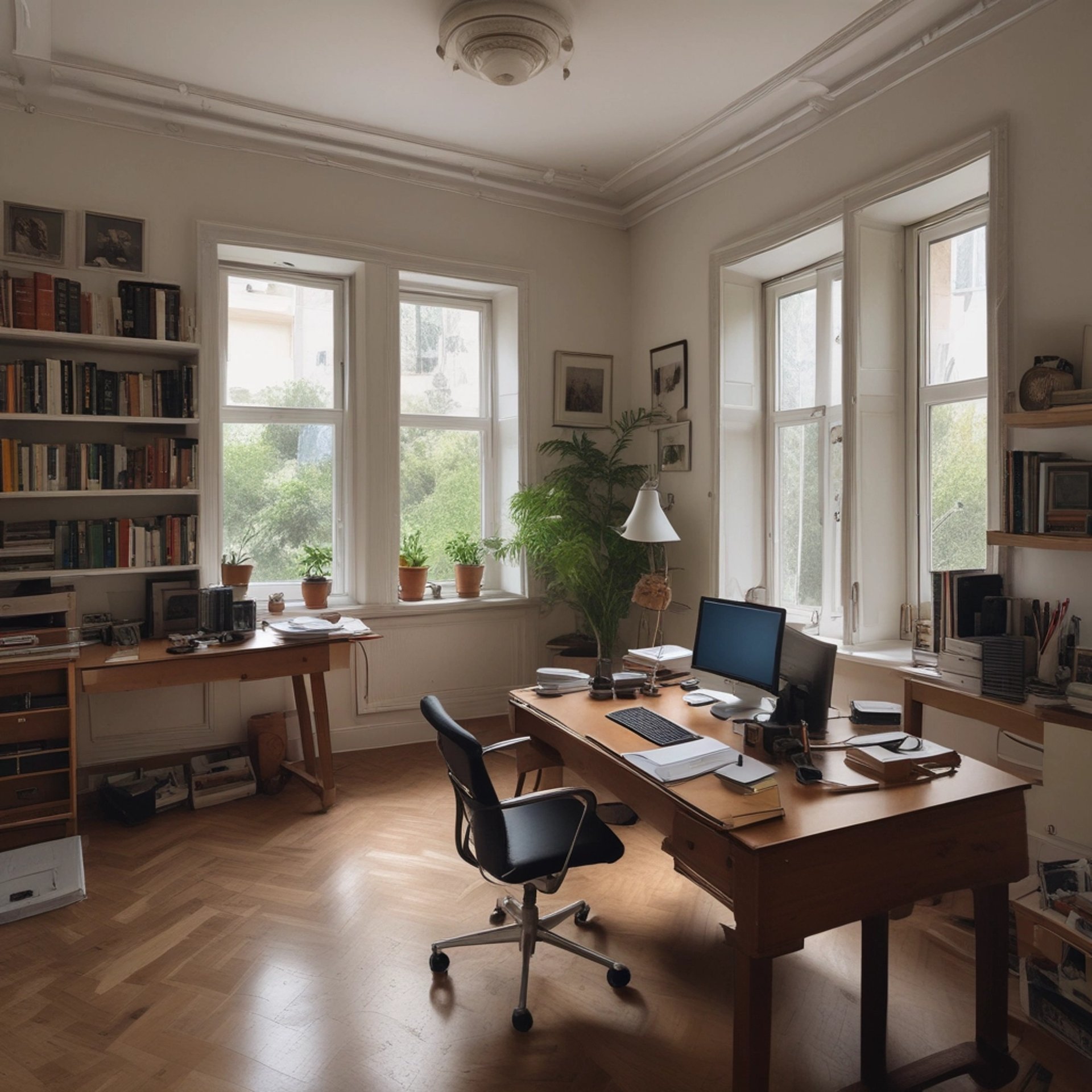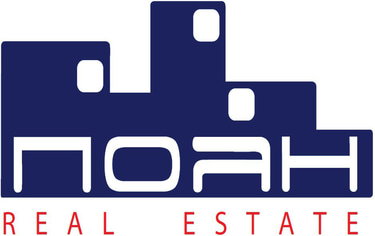🏡 How Remote Work Has Changed the Way We Choose a Home
Remote work has redefined the global housing market. In Greece, it’s reshaping how people buy, design, and live in their homes — merging work, comfort, and Mediterranean lifestyle.
REAL ESTATE INVESTMENT
Christos Boubalos - poli.gr
10/28/2025

1. The Rise of Remote Living
Over the last few years, remote work has evolved from a temporary necessity to a permanent way of life. What began as an emergency solution during the pandemic has now become a preferred model for millions of professionals worldwide.
As companies adopt flexible or fully remote policies, people are no longer tied to office locations. Instead, they can choose where they want to live based on lifestyle, affordability, and quality of life rather than commuting distance.
In this new reality, “home” has become a hybrid space — part workplace, part sanctuary, part creative studio. This shift has triggered one of the most significant transformations in the real estate market in decades.
2. From City Centers to Lifestyle Destinations
Before remote work, proximity to the office was everything. Now, that equation has changed. Professionals are leaving crowded urban areas in search of greener, quieter, and more affordable environments.
In Greece, this trend is visible from Athens to the islands. Suburbs like Marousi, Kifissia, and Glyfada attract buyers who want access to the city but also space, light, and privacy. Meanwhile, coastal towns in Evia, the Peloponnese, and Crete are drawing digital nomads and families looking for a permanent change of pace.
What people are really buying is a lifestyle — morning walks by the sea, home offices with natural light, terraces that double as meeting spots, and a slower rhythm that enhances both mental health and productivity.
3. What Remote Buyers Are Looking For
The checklist of the ideal home has changed dramatically. Here’s what modern buyers now prioritize:
Reliable Internet & Power: A fast, stable connection is as important as running water. Properties with fiber internet or strong 5G coverage are in high demand.
Dedicated Workspace: Even small apartments now include a separate office nook or flexible room that can serve as a workspace.
Natural Light & Ventilation: Working from home has made people more sensitive to interior comfort — sunlight, fresh air, and acoustic insulation matter more than ever.
Outdoor Spaces: Balconies, gardens, and terraces have become essential extensions of living and working areas.
Energy Efficiency & Smart Systems: Sustainability meets practicality. Energy-efficient buildings and smart-home automation reduce costs and increase resale value.
Quiet Location with Access to Amenities: Buyers seek peaceful environments within reach of daily conveniences, schools, healthcare, and culture.
This new generation of buyers doesn’t just ask “how many bedrooms?” — they ask “how does this space make me feel during an eight-hour workday?”
4. Developers Are Adapting
Greek developers are quickly responding to this evolution in lifestyle and housing needs. Modern residential projects now emphasize:
Flexible floor plans that allow reconfiguration between private and work zones.
Large windows and open layouts that invite natural light.
Shared amenities like co-working lounges, fitness studios, and rooftop gardens.
Green design principles that reduce energy use and improve air quality.
Some of the most innovative developments combine urban convenience with natural serenity — offering proximity to Athens’ business districts but with the design and tranquility of a resort home.
The result? Real estate projects that not only attract Greek buyers but also foreign professionals relocating to Greece under digital nomad or Golden Visa programs.
5. Greece: A Natural Fit for Remote Living
Greece has quietly become one of Europe’s most attractive destinations for remote work and long-term living. Its advantages are clear:
Over 250 sunny days per year, ideal for outdoor living and renewable energy use.
Competitive property prices compared to other Mediterranean markets.
High-speed internet expansion across regions and islands.
Government incentives for digital nomads and investors, including residency and tax benefits.
From Athens to Crete, Evia, and the Cyclades, many properties now blend Mediterranean charm with modern connectivity. For investors, this creates an opportunity to target a new global demographic: people who can live — and work — anywhere.
6. Investment Implications: The “Live-Work” Home as an Asset
For investors, the remote-work revolution means more than lifestyle change — it means portfolio opportunity.
Properties that align with this new reality hold long-term appeal:
They attract stable, professional tenants willing to pay premium rents for comfort and quality.
They offer flexibility between short-term digital nomad rentals and long-term leases.
They maintain resale value because they meet modern living standards that will outlast temporary market trends.
Developers and investors who integrate co-living, co-working, and sustainable design elements early will define the next generation of real estate in Greece.
7. The Emotional Shift: Home as an Anchor
Beyond economics, remote work has changed the emotional meaning of home. For many, the home is now where they express identity, build routines, and find stability in a fast-changing world.
This emotional connection drives purchasing decisions — buyers want spaces that reflect who they are, not just where they live. That’s why architecture, natural materials, light, and even view orientation matter more than ever before.
8. The Future of Home Design
The future Greek home will be:
Modular, adapting to different uses throughout the day.
Energy-independent, using solar and battery systems to reduce dependency and costs.
Digitally integrated, with smart control for lighting, temperature, and security.
Emotionally intelligent, designed to enhance focus, relaxation, and wellbeing.
In essence, the next generation of real estate development will merge technology, psychology, and architecture — turning houses into dynamic ecosystems for modern life.
Conclusion
Remote work hasn’t just changed where people live — it has transformed why they choose a home. Across Greece, buyers are rethinking priorities: natural light instead of traffic noise, flexible layouts instead of fixed routines, and quality of life over commuting distance. This new mindset is reshaping both the housing market and the way developers approach design.
At Poli Real Estate, we embrace this transformation. Our projects and collaborations focus on creating homes that reflect today’s hybrid lifestyle — properties built for comfort, creativity, and connection. Whether you’re an investor exploring the Greek market or a professional seeking a new home designed for remote living, we’re here to guide you every step of the way.
Discover how your next home in Greece can combine work, wellbeing, and long-term value — contact Poli Real Estate today to discuss the opportunities available.
Brokerage
Contact
info@poli.gr
+30-6972-666688
+30-6972-885885
© 2025 Poli Real Estate. All rights reserved.
